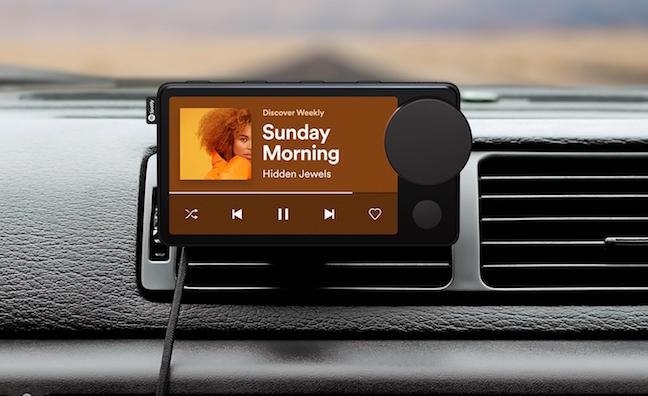All eyes have been on the Spotify numbers for signs of a streaming switch-off.
Perhaps of more significance, however, is the company’s decision to halt production of its Car Thing device. The product had been positioned as a bold new entry into in-car streaming.
In its Q2 results, Spotify revealed that it had stopped production of Car Thing - incurring a €31 million charge as a result. The company reported an operating loss of €194 million in the quarter.
A year ago, CEO Daniel Ek described Car Thing as a “massive opportunity”.
Speaking on the earnings call today, chief financial officer Paul Vogel said: "First, we tested a number of price points and we frankly haven’t seen the volume at the higher prices that would make the current product financially viable. Second, rising inflation and component costs, coupled with the expanded lead time needed to order parts, has significantly altered the risk reward of continuing to lean into further product development."
While the Spotify rate of growth has been slowing, there is as yet no sign of the cancellations that have been experienced by Netflix. Kantar also reported on the impact of the cost of living crisis recently on the wider audio streaming market.
In the Q2 figures, Spotify’s premium subscribers increased by 14% year-on-year to 188 million. The streaming giant noted that most key metrics surpassed guidance, with monthly active users (MAUs) powering ahead 19% year-on-year to 433m. The figure would have been higher but for the effects of the Russia withdrawal and an outage in March.
However, the quarter-on-quarter movement shows growth slowing down compared to recent years. Premium users increased by just 3% (six million subscribers) compared to Q1. But that is an improvement on the first three months of the year, when the quarterly increase was just 1% (two million subscribers), again with Russia affecting the performance.
In Q4 of 2021, Spotify added eight million subscribers in three months, while in Q3 it signed up seven million.
“While we continue to monitor the uncertain macro environment, we are very pleased with the resilience of the business, particularly our strength in MAUs and subscribers,” said Spotify in its financial summary.
For Q3, Spotify is forecasting premium subscribers at 194m (similar growth to Q2 at 3.2%) and MAUs at 450m.
Total revenue was up 23% year-on-year at €2.864 billion. Premium revenue grew 22% year-on-year to €2.5 billion.
While labels have generally been more keen on subscriber growth, the freemium model has if anything become more important than ever in the streaming market. Spotify’s ad-supported revenue grew 31% year-on-year to €360 million, reaching an all-time high as a percent of total revenue at 13% for Q2









